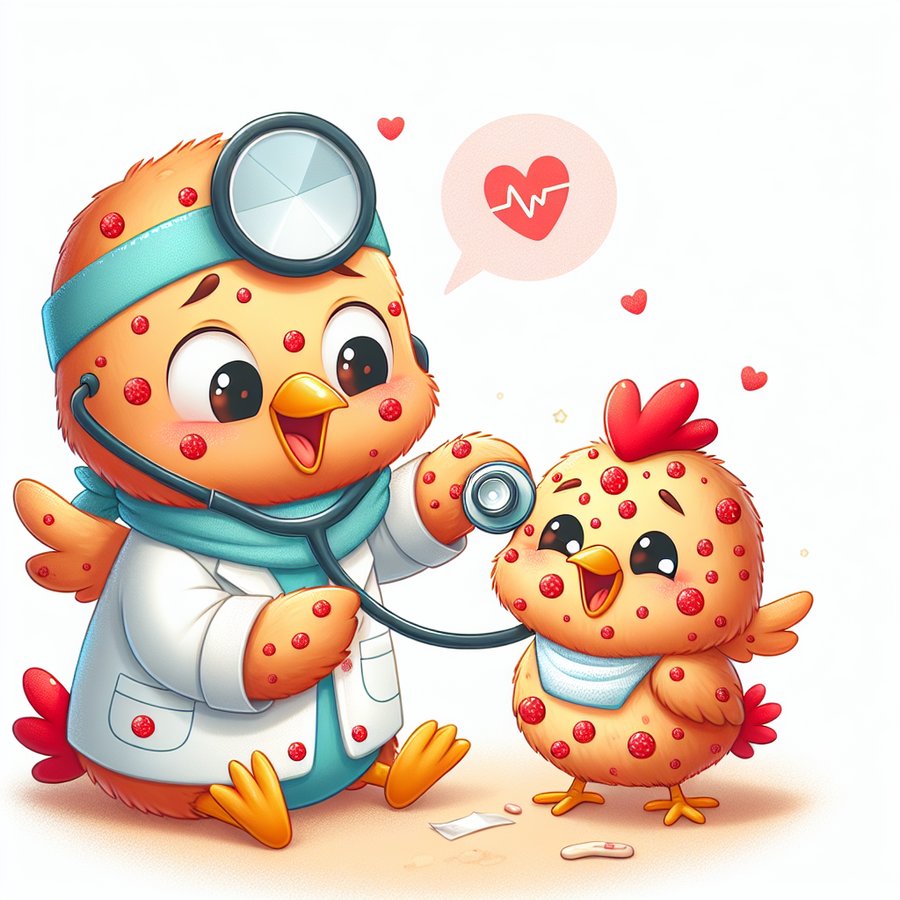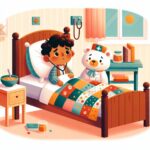Varicella, more commonly known as Chickenpox, is a highly contagious disease that primarily affects children and is caused by the varicella-zoster virus (VZV). Understanding Varicella is crucial for new parents as it equips them with the knowledge to effectively care for their child during this potentially uncomfortable time. This article provides a comprehensive overview of Varicella, including its symptoms, treatments, and preventative measures.
What is Varicella (Chickenpox)?
Varicella (Chickenpox) is an infectious disease characterized by itchy, red blisters that cover the body. It is most commonly observed in children, although it can affect individuals at any age, especially those who have not been vaccinated or have not previously contracted the virus. The disease is known for its highly contagious nature, spreading through direct contact with the rash or through the air by respiratory droplets when an infected person coughs or sneezes.
The initial symptoms of Varicella include fever, tiredness, loss of appetite, and a general feeling of being unwell, followed by the appearance of the characteristic rash. This rash typically starts on the face, chest, and back before spreading to the rest of the body. Understanding these symptoms is crucial for early detection and treatment.
How is Varicella Treated?
Treatment for Varicella primarily focuses on relieving symptoms and preventing complications, especially in young children. While there is no cure for the virus itself, certain measures can be taken to make your child more comfortable during the illness. These include keeping them well-hydrated, using paracetamol to reduce fever, and applying calamine lotion or taking oatmeal baths to soothe itching.
It is also important to trim your child’s fingernails to prevent scratching, which can lead to scarring or secondary infections. For severe cases or for children with weakened immune systems, antiviral medications may be prescribed by a healthcare provider. Keeping the infected child away from others who have not had chickenpox or the vaccine is also crucial to prevent the spread of the virus.
Preventing Varicella
The most effective way to prevent Varicella is through vaccination. The chickenpox vaccine is safe and highly effective at preventing the disease and is usually given in two doses, with the first dose recommended at 12 to 15 months of age and the second dose at 4 to 6 years of age. Vaccination not only protects your child from Varicella but also reduces the severity of the disease if they do contract it after being vaccinated.
It’s also vital to practice good hygiene habits, such as regular hand washing, to prevent the spread of the virus. Educating your child on the importance of not sharing drinks or utensils and covering their mouth when coughing or sneezing can also help reduce the risk of transmission. For more information on the Varicella vaccine and its administration, visit the Centers for Disease Control and Prevention (CDC) website.
What to Do if Your Child Has Varicella
If you suspect that your child has Varicella, it’s important to contact your healthcare provider for guidance. They can confirm the diagnosis and recommend appropriate treatment options. Keeping your child comfortable and monitoring them for any signs of complications, such as bacterial infections, dehydration, or pneumonia, is vital.
Additionally, inform your child’s school or daycare about the illness so they can take necessary precautions to prevent further transmission. Isolation at home until all the blisters have crusted over is generally recommended to limit the spread of Varicella. During this time, engaging your child in calm, quiet activities can help keep their mind off the itchiness and discomfort.
FAQs about Varicella in Children
Here are some frequently asked questions new parents might have about Varicella:
- Can my child get Varicella even if they’ve been vaccinated?
- How long does Varicella last?
- Can adults get Varicella?
- How can I make my child more comfortable if they have Varicella?
- When should I seek medical attention for my child with Varicella?
Understanding Varicella and how to manage it can help new parents navigate this common childhood illness with confidence. By recognizing the symptoms early, following recommended treatment and prevention strategies, and keeping informed through reliable sources, you can ensure the health and well-being of your child during a Varicella outbreak.
For more information on related health topics such as Atopic Dermatitis, Allergies, and Immunizations, please visit our website.













